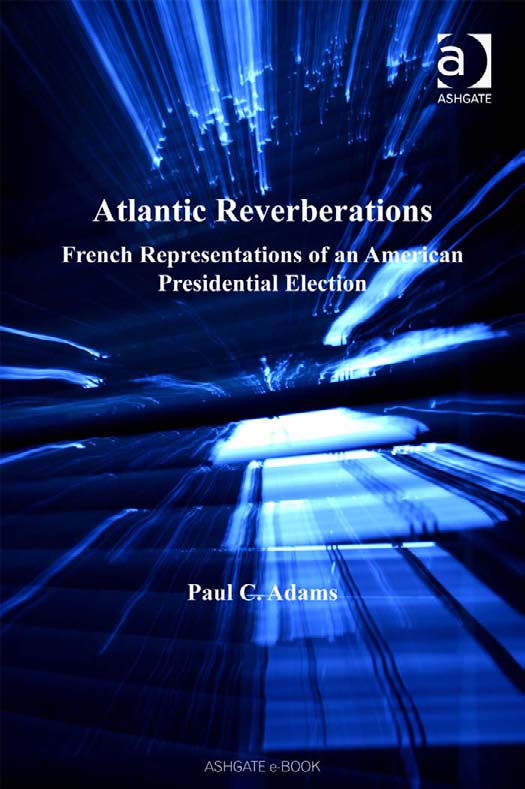
ATLANTIC REVERBERATIONS
To my parents, Darryl and Kathryn Adamsfor fostering an interest in what lies beyond the horizon

Atlantic ReverberationsFrench Representations of an AmericanPresidential ElectionPAUL C. ADAMS
University of Texas at Austin, USA
Paul C. Adams 2007All rights reserved. No part of this publication may be reproduced, stored in a retrieval system or transmit-ted in any form or by any means, electronic, mechanical, photocopying, recording or otherwise withoutthe prior permission of the publisher.Paul C. Adams has asserted his moral right under the Copyright, Designs and Patents Act, 1988, to beidentified as the author of this work.PublishedbyAshgate Publishing LimitedAshgate Publishing CompanyGowerHouseSuite420CroftRoad101CherryStreetAldershotBurlington,VT05401-4405Hampshire GU11 3HRUSAEnglandAshgate website: http://www.ashgate.com
British Library Cataloguing in Publication DataAdams, Paul C.Altantic reverberations: French representations of anAmerican presidential election1. Presidents United States Election 2004 2. Publicopinion France 3. United States Foreign public opinion,French 4. United States Press coverage France 5. UnitedStates Relations France 6. France Relations UnitedStates 7. United States Politics and government 2001Public opinionI. Title327.7'3'044
Library of Congress Cataloging-in-Publication DataAdams, Paul C.Atlantic Reverberations: French representations of an American presidential election /by Paul C. Adams.p.cm.Includes bibliographical references and index.ISBN-13: 978-0-7546-7023-0ISBN-10: 0-7546-7023-61. Presidents--United States--Election--2004. 2. Elections--United States--Publicopinion. 3. Public opinion--France. 4. Mass media--Political aspects--France. 5. UnitedStates--Foreign public opinion, French. 6. Communication in politics--Case studies. 7.Golbalization--Political aspects--France. 8. Gloablization--Political aspects--UnitedStates. 9. France--Relations--United States. 10. United States--Relations--France. I.Title.E905.A33 2007324.973'0931--dc222006032978ISBN: 978-0-7546-7023-0Printed and bound in Great Britain by MPG Books Ltd, Bodmin, Cornwall.
Contents
This page intentionally left blank
2.1Geopolitical representations in their context223.1Make the French Happy!323.2Unity envisioned for the EU in the future495.1America divided cartoon1015.2Undecided voter cartoon1025.3European construction cartoon1145.4Newspaper voter portrait of a Dallas Republican1175.5Newspaper voter portrait of an Austin Democrat1185.6John Kerry from the front page of
Libration 1225.7Newspaper map of referendums1245.8Newspaper map of anti-Bush actions1256.1Volume of TF1 election coverage1396.2Volume of France 2 election coverage1396.3Timing of election stories within news programs1416.4Television image of long line at a polling place1466.5Television image of small town caf1536.6Television image of Elect Jesus as Your Lord yard sign1566.7Television image from Noxon, Montana1597.1Tree diagram of Internet discussion1777.2Views in Reelection de Bush discussion1797.3Views in Que Faire? discussion1807.4Political preferences in Internet forums, by posting1817.5Political preferences in Internet forums, by participant1827.6Attitudes in Internet forums, as percentage of total1837.7Views in
Quand la Chine supplantera les U.S.A. discussion1847.8Views in
Moi, je vais voter pour Bush discussion1857.9Contribution count by participant in
Quand la Chine 1867.10Contribution count by participant in
Reelection de Bush 186
This page intentionally left blank
3.1Results of a ten-country survey regarding the Americanpresidentialcandidates383.2Survey results expressed as ratio385.1Motifs in newspaper coverage986.1Duration of selected television reports regarding the election1386.2Motifs in television coverage1447.1French Internet-based abbreviations172
This page intentionally left blank
One French observer of the 2004 American presidential election framed the outcomein the following way: The United States has missed its rendezvous with history.In my view, this day [November 2, 2004] will remain, no less than September 11,2001, an indication of the start of the 21st century, and an equivalent catastrophe.(Climacus 2004). The distinctions between Us and Them that are so vital to conceptsof nation and nationality are brought into public discourse from time to time bycertain critical events. These events whether violent like revolutions or peacefullike elections are turning points for the construction of national identities both inand beyond the states directly concerned. Dijkink (1998) calls these salient eventspeak experiences.The attacks of September 11 constituted such a peak experience in the US andabroad as did the 2004 election to which Climacus (an Internet pseudonym) linkedthem. The importance of these events spilled across national boundaries to virtuallyall the rest of the world, prompting varied debates. In Europe, the questions raisedby the attacks were particularly pressing: was the US part of The West (in France
loccident) or was the US a separate entity, pursuing its own political and culturalpath, useful to Europe but also dangerous no longer wedded to Europe through theties that had existed at one time?This geopolitical debate intensified with the 2004 presidential campaign. Whatwould be the implications of a second term for George W. Bush or an upset by JohnKerry? Why was half of the American population supportive of Bush and why werentmore people in favor of his opponent who was widely favored in Europe? What didthe closeness of the election say about America? Was the Bush administration athreat to global stability, and in what way? Finally, what should or could the Frenchdo in response to the political climate in the last remaining superpower, what theFrench statesman Hubert Vdrine called the
lhyperpuissance (the hyperpower)?Americans need to engage seriously with such foreign perceptions, on the onehand, to address pragmatic US security interests and, on the other hand, to moreeffectively support the ideals that the US has championed, albeit with less thanperfect integrity, for many years, including freedom and democracy. The most cynicalobservers see these ideals as no better than a smokescreen for American imperialambitions, but many others see the ideals functioning ambivalently. At times theymask the operation of US power but at other times they provide a moral order thatinspires Americans to act in unselfish ways. There is also, of course, the view thatAmerica can do no wrong, that we are the liberators, we protect the weak andpreserve the innocent (Colombani and Wells 2004, 7) a view that Americans haveabsorbed through indoctrination until foreign scholars ironically refer to it as part of
xii
Atlantic Reverberationstheir DNA code. But scholars at least must vigorously question the motivationsbehind the superhero complex that drives Americans to assert their vision of order onthe world, and drives foreign observers to produce critical responses.Toward this end, I examine discursive constructions of the American presidentialelection of 2004 by French observers in three distinct communication contexts:television, newspapers, and the Internet. While all three media indicate that the Frenchpreferred John Kerry over George Bush, the cross-media analysis reveals many subtlegradations in the preference, nuances in its implications, and diversity in its expression.I argue that these nuances reflect intellectual debates relating to the ideas of Europe asa unified world power and the US as a uniquely unstoppable global power. In addition,I show that as the political drama reverberated across the Atlantic Ocean through a setof rather different technologies, each demonstrated its own peculiar way of mobilizingrepresentations of the US for and by its various audiences.The book is designed to encourage both theoretical and pragmatic discussionsabout the future of the geopolitical system about the web of power relationsbetween 21st century states. It is based on the premise that American leadershipof the world through force and economic coercion cannot be considered democraticsimply because the US is internally a democratic state. Voices expressing concernwith US hegemony, like many of the French observers considered here, are notopposing democracy; rather they are expanding the democratic process to a trans-border space of debate and discourse participating in the on-going evolution ofcitizenship in the face of globalization.I want to thank the following individuals who helped make this project possible.The University of Texas provided a Maymester teaching assignment in France in2004 and funded two subsequent visits partially or wholly. The University fundingincluded a Summer Research Assignment by the Office of Graduate Studies. Mme.Blandine Perrin of API, Grenoble generously committed her time and office spaceto many, many copies of
Next page

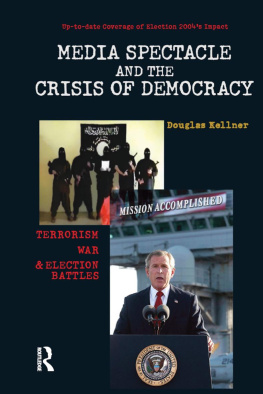
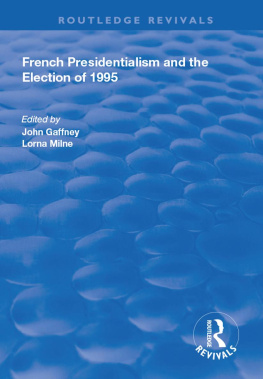

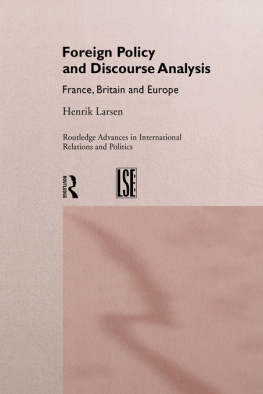
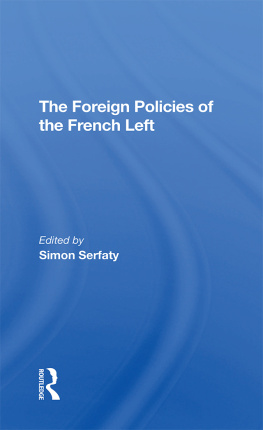
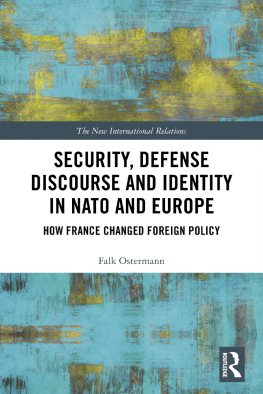
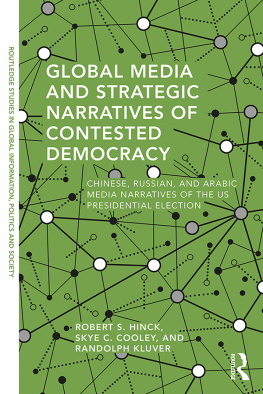
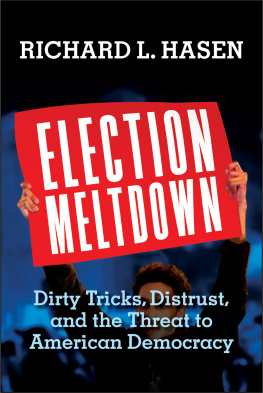


 Atlantic ReverberationsFrench Representations of an AmericanPresidential ElectionPAUL C. ADAMSUniversity of Texas at Austin, USA
Atlantic ReverberationsFrench Representations of an AmericanPresidential ElectionPAUL C. ADAMSUniversity of Texas at Austin, USA